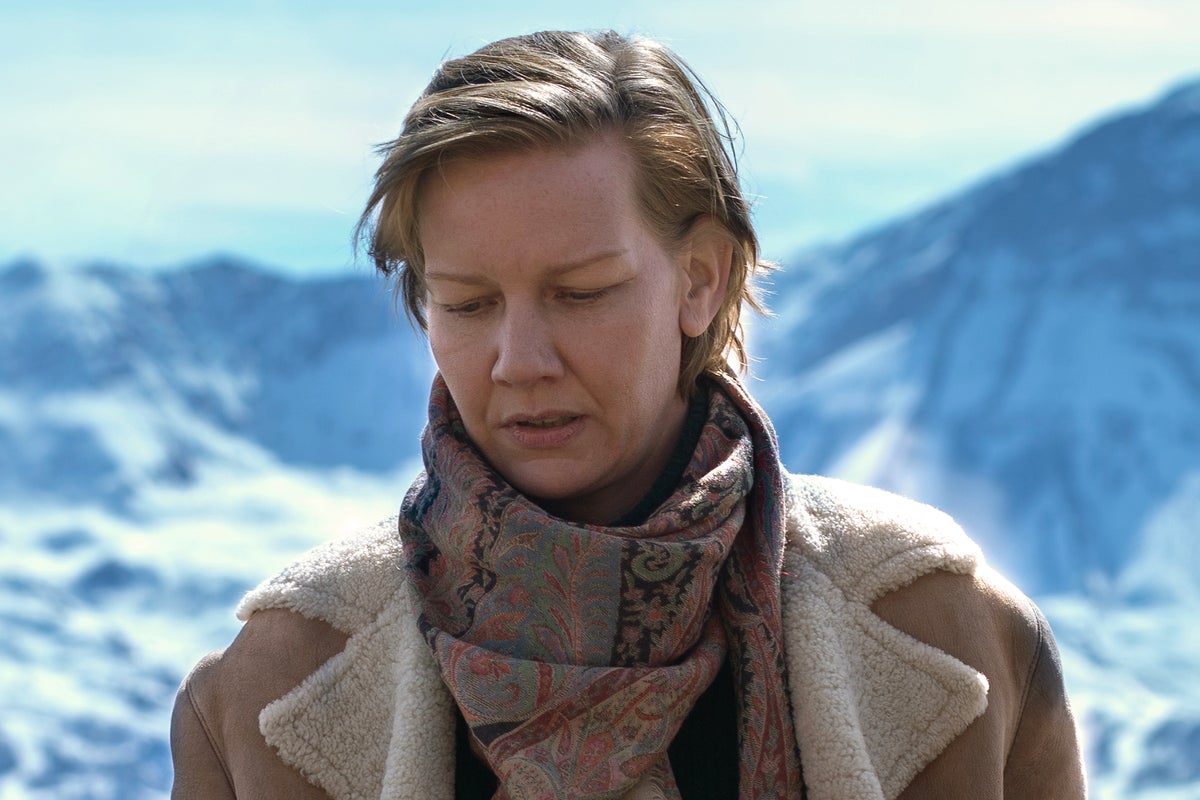
Justine Triet’s Anatomy of a Fall, which won the Palme d’Or at Cannes in May, is an austere, methodical courtroom drama built with stunning precision. A woman, novelist Sandra Voyter (Sandra Hüller), is placed on trial after her husband is found dead, outside in the snow, by their visually impaired son Daniel (Milo Machado Graner). Investigators conclude two possibilities: murder or suicide. Yet, Triet selectively weaponises the sensationalist language of true crime to question whether our hunger for truth may, in fact, be a hunger for closure.
If you’ve watched even a handful of true crime documentaries, you’ll know the techniques often used. There are the lingering shots of significant locations, left unpopulated like crime scenes: a lone staircase, perhaps, or a desk suddenly abandoned, books flung open and coffee half-drunk. There is the montage of family photos, a blissful picture of the past now poisoned by death. And, typically, the candid, off-camera voices – interviewer and interviewee, caught moments before the cry of “action”.
Here, the pair of voices belong to Sandra and graduate student Zoé (Camille Rutherford), who’s arrived at Sandra’s home in the Alps to conduct a career-spanning interview. It’s an intimate, lightly playful conversation, one that is soon interrupted by the thundering, overhead clang of a steel-drum cover of 50 Cent’s “P.I.M.P.”.
Sandra’s husband, Samuel Maleski (Samuel Theis), is upstairs, working on renovations. Apparently, it’s conducive to his productivity. Sandra and Zoé abandon the interview. An hour later, a man is dead. Triet’s script – co-written with Arthur Harari – lets a wrecking ball run through Sandra’s life. The more we crave to know as an audience, the more both prosecutor (Antoine Reinartz) and defence attorney (Swann Arlaud) tear out chunks of her soul and serve them up as evidence.
Sandra is bisexual. Was her friendliness with Zoé actually flirtation? Was Samuel’s choice of song, the “deeply misogynistic” “P.I.M.P.”, a jealous retaliation? Or is this some biphobic assumption? Who knew Samuel’s psychological state better? His wife or his psychotherapist? At times, the conversations on the courtroom floor seem absurd. The prosecution submits a passage in one of Sandra’s books as evidence, only for someone else to point out that no one reads Stephen King’s work only to conclude that he must be a serial killer.
Yet, it’s hard not to be drawn in. That’s the trick of Anatomy of a Fall. Sandra is a fascinating, one-woman puzzle box, thanks largely to the strength of Hüller’s performance. As an actor, she has always thrown herself at this kind of impenetrable role – as the cold, worker bee daughter in 2016’s absurdist comedy Toni Erdmann, or the wife of a commandant at Auschwitz in Jonathan Glazer’s forthcoming The Zone of Interest.
Sandra can be cruel. She loves her son. Maybe she’s manipulative. It’s heartbreaking when, as a German native in a French court of law, she struggles to communicate. Occasionally, this strong-headed, determined woman can seem as lost as a child. But, when Anatomy of a Fall reaches its conclusion, we’re met not with vindication but with an aching silence – and it’s then that our fascination threatens to transform into complicity.
Dir: Justine Triet. Starring: Sandra Hüller, Swann Arlaud, Milo Machado-Graner, Antoine Reinartz, Samuel Theis. 15, 152 minutes.
‘Anatomy of a Fall’ is in cinemas from 10 November







